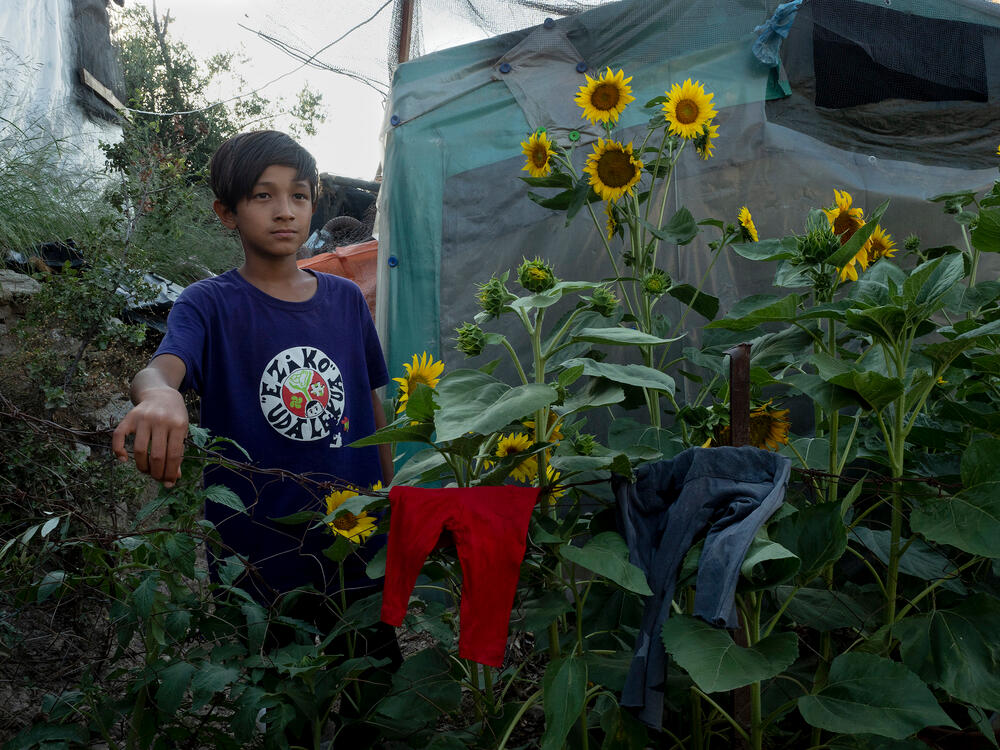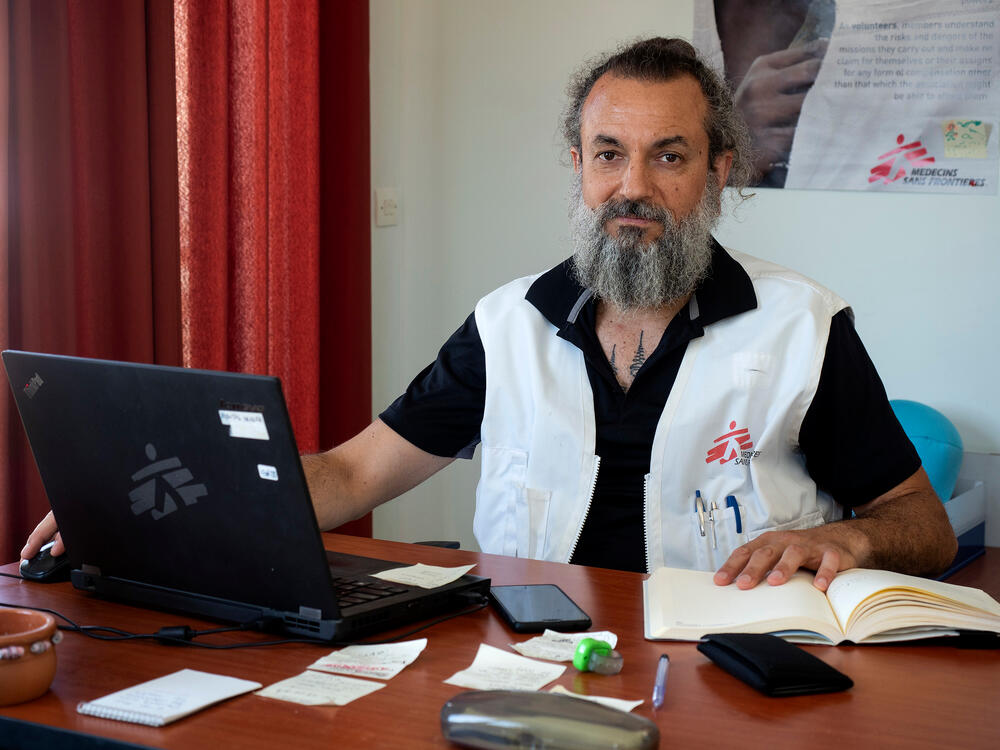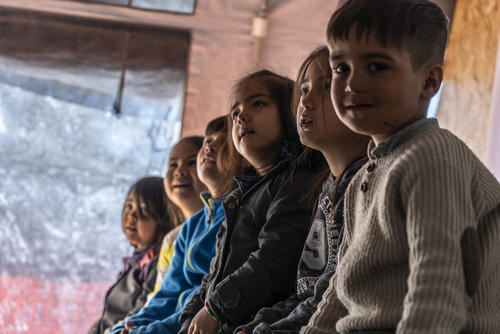Child mental health: The crisis at the edge of Europe
Around the world, COVID-19 lockdown measures have had an impact on everyday life, and, for many of us, been the cause of stress and anxiety.
However, the restriction imposed in places like Moria and Vathy, on the Greek islands, have proven to be toxic for the thousands of vulnerable people detained there.
Dangerous measures
When COVID-19 reached Greece, more than 30,000 refugees and migrants were already held in appalling conditions in "reception centres" across the country.
In March 2020, when the Greek government then imposed restrictions on movement in response to COVID-19, people living in the camps were cut off inside these dangerously overcrowded and unsafe centres.
Now that life outside has returned to normal for local people and tourists alike, these clearly discriminatory measures for asylum seekers and migrants continue to be extended every two weeks – despite there being zero cases of COVID-19 in the camps.
The impact on the medical and mental health of men, women and children has been devastating.
Listen to MSF coordinator Marco Sandrone describe the appalling conditions for children on the held on Lesbos
Why are people detained on the Greek islands?
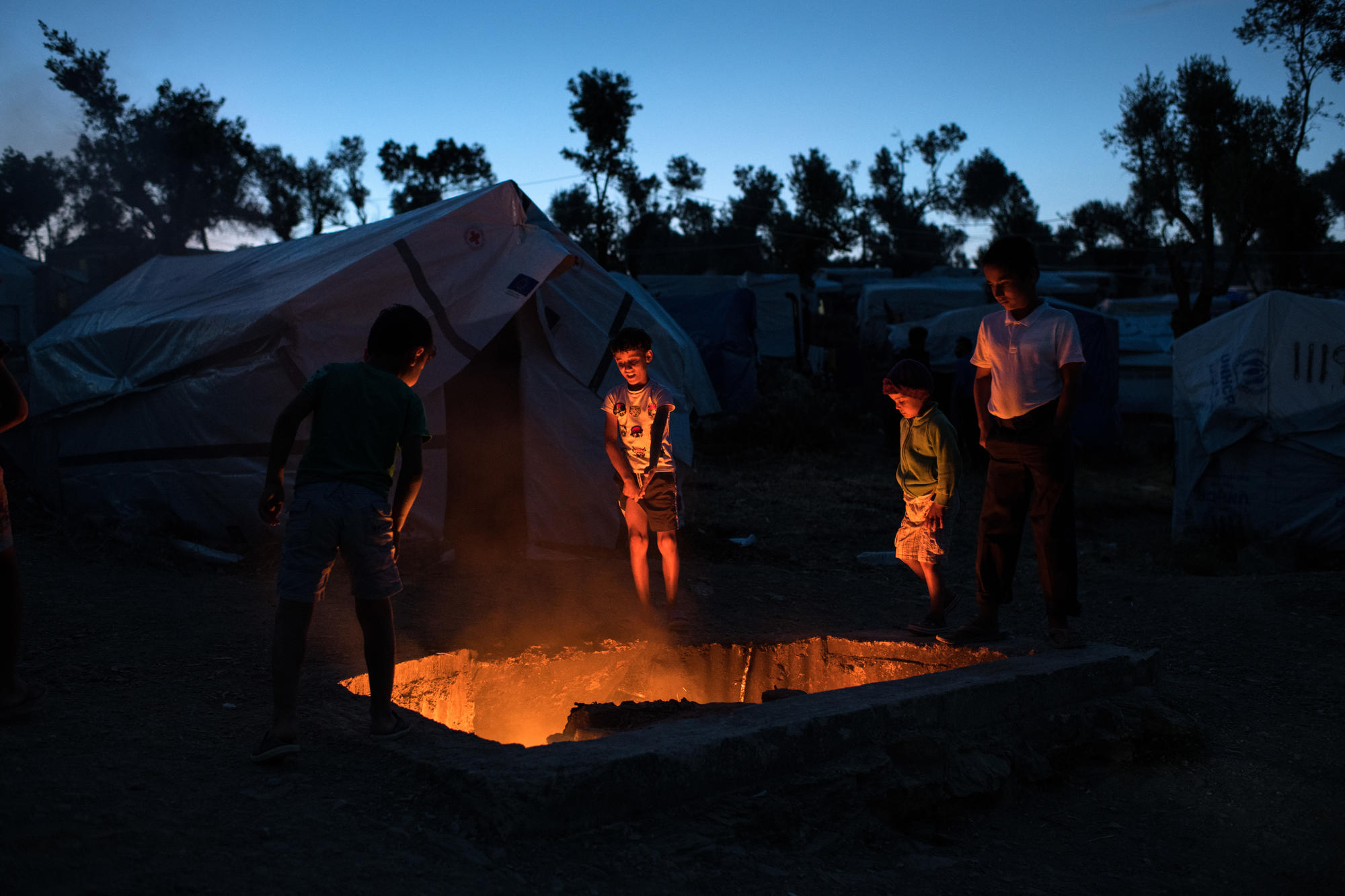
Refugees and migrants from countries such as Syria, Afghanistan and Iraq are arriving in Greece in search of safety within Europe, only to find themselves stranded indefinitely.
This has been happening since March 2016 and the agreement of the so-called "EU-Turkey deal" to control the arrival of people crossing from Turkey.
Today, 30,000 people, the majority women and children, are held in "reception centres" across Greece – trapped in inhumane conditions without access to even basic services or healthcare.
MSF provides medical and mental healthcare for people on the islands of Lesbos, Samos and in the capital Athens. We are currently witnessing overwhelming numbers of people suffering from serious mental health conditions.
Katerina Srahulkova | MSF child psychologist in Moria paediatric clinic
“The restrictions have further limited children’s access to services and everyday activities that would help them escape from the nightmare of Moria even for a little while... activities might seem simple but are vital for a child’s mental health.
At the same time, their access to treatment is restricted, too.
Today, children's days are empty and parents feel unable to offer them what they need. A child cannot always understand why they have to stay in the tent.
Children now say that they are often afraid, and we also see an increase in panic attacks. It is a vicious cycle.
Before, I would hear about the general uncertainty that comes with being an asylum seeker – focusing on the future and the asylum application – but now it is more about the daily struggles and the effort to survive.
People see Moria as a place they want to escape from. They do not feel safe.
It all adds to their suffering and has an impact on their mental health. These restrictions are just making people’s life even harder.”
“Moria is the worst virus, not COVID-19”
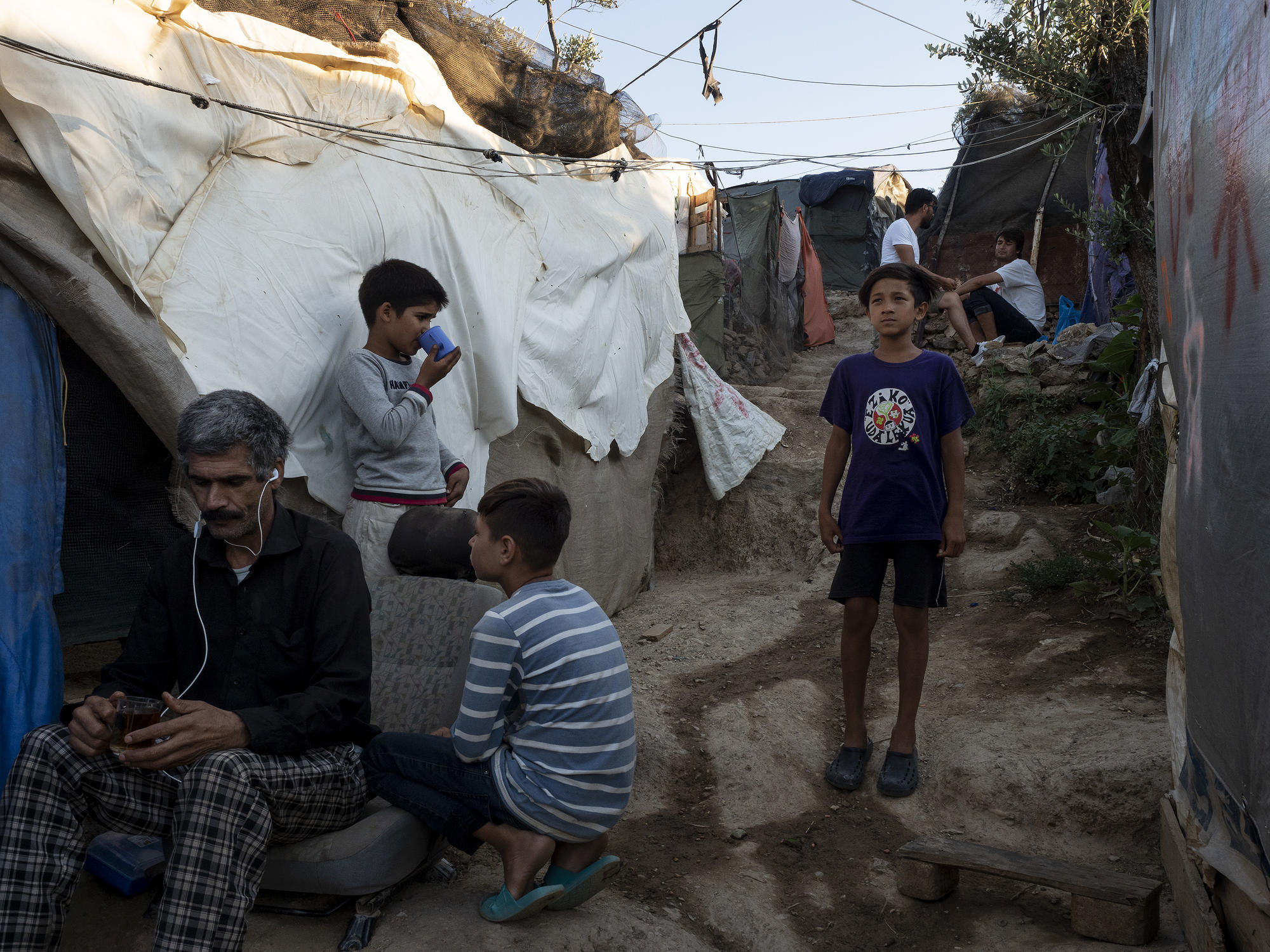
Yasin is a nine-year-old boy from Afghanistan. He lives with his parents and three-year-old brother in a makeshift tent in Moria.
Once a week, he visits the MSF paediatric clinic with his father Mohtar to see a child psychologist.
“We arrived to Lesbos in October 2019”, says Yasin’s 31-year-old father, Mohtar.
“Within the first two weeks, I started to notice a change in Yasin’s behaviour.
"He was suffering from nightmares and every night he would wake up in the middle of the night screaming. His worst nightmare is that someone is chasing after him and attacks him.
"As time went by, he started doing things I can’t explain."
Mohtar says the situation in the camp has become unbearable since the new COVID-19 restrictions:
“The tensions have increased dramatically and there is much more violence since the lockdown. The worst part is that even children cannot escape from it anymore.
"The only thing I could do before to help my son was to take him away from Moria; for a walk or to swim in the sea, in a calm place. Now we are trapped.
"The only thing that makes him feel safe is when we are at the MSF clinic... for us, Moria is the worst virus, not COVID-19.”
Greg Kavarnos | MSF psychologist in Moria
"The mental health of my patients has been affected dramatically. People cannot do simple activities – such as buying food, going for a walk or socialising – that give them hope and some degree of independence.
Now, access even to these simple things has become impossible. On top of this, there is more tension in the camp and more violent incidents.
I treat survivors of torture, so for them it is especially difficult to witness violence. They came to Greece and the European Union to seek safety. Instead, life inside the camp triggers memories of these traumatic experiences from their past.
During the pandemic, we have all felt how hard it is to be locked in our homes. There is no doubt that any closed space is bad for our mental health.
Imagine how people who have endured traumatic experiences feel now that they have to stay locked up in a camp like Moria – a place where they cannot find peace or privacy, where they have to stand in lines for food, for the toilet, for water, for everything.
This camp was a nightmare already, but the restrictions are making everything even worse.”
Unjustified
MSF cannot stay silent about this blatant discrimination.
The restrictions imposed on life in the camps reduces people's already limited access to basic care and services. And, in the current phase of the COVID-19 epidemic within Greece, is unjustified from a public health point of view.
It is discriminatory towards people who do not represent a risk – they are at risk.
Urgent evacuation
COVID-19 should not be used as a tool to further detain already vulnerable refugees and migrants.
We continue to call for the transfer of people, especially those who belong to high-risk groups for COVID-19, from the reception centres to safe accommodation.
The conditions in the camps are dangerous in normal time. However, they have now become home to violence, sickness and misery.
Take action: Tell the UK Government to provide sanctuary for vulnerable refugee children
MSF in Greece
In 2019, nearly 75,000 migrants and refugees from countries such as Syria and Afghanistan arrived in Greece.
Men, women and children continue to make the journey in search of safety or to reach other destinations in Europe, only to find themselves stranded indefinitely.
Since the so-called EU-Turkey deal in March 2016, migrants and refugees previously in transit through the Greek islands have been trapped there for an indeterminate time in overcrowded, unsafe and unhygienic conditions, without access to basic services, adequate shelter or information on their legal status.
As well as providing medical and mental healthcare to migrants and refugees on the Greek islands and in Athens, Médecins Sans Frontières/Doctors Without Borders (MSF) continues to call for vulnerable people to be evacuated and policies of containment to be replaced by sustainable, humane solutions.
